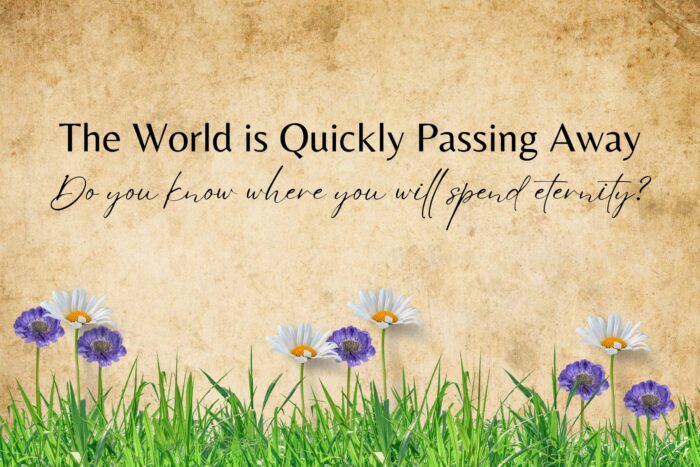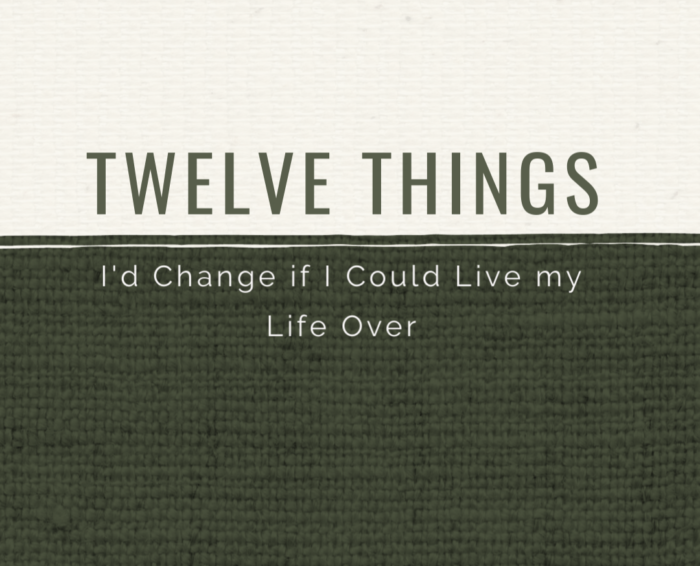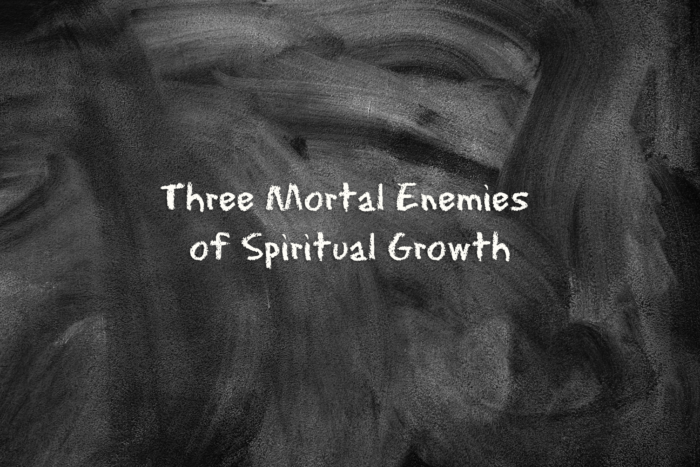Shining As Lights (Life Lessons from Philippians)
I was outside and, as my eyes moved towards the trees that are to the south, I noticed some bright white. Ahh, I had forgotten just how beautiful the blooming wild pear trees look among all of the leafless branches. The other trees would soon be full of the bright green leaves of summertime, but during this short window of time the pear trees would shine brightly in the midst of the trees still wearing their winter garb.
I was reminded of this beautiful view when I read these verses in Philippians this morning–
That ye may be blameless and harmless, the sons of God, without rebuke, in the midst of a crooked and perverse nation, among whom ye shine as lights in the world; Holding forth the word of life; that I may rejoice in the day of Christ, that I have not run in vain, neither laboured in vain. (Philippians 2:15-16)
As believers, we are to be like those trees, standing strong and pure and white in the midst of a dark, wintry world. We represent life and light to those who are perishing. How exactly do we do this?
This can only be done by standing out as different from the dark world around us. If we look like all of the other wintry trees, we will blend in with the rest of the world and never shine as a light. Paul actually gives us several ways we can accomplish this “looking different” earlier in the chapter.
First, we find that we will look different by desiring true biblical unity with fellow believers–
Fulfil ye my joy, that ye be likeminded, having the same love, being of one accord, of one mind. (Philippians 2:2)
Biblical unity with fellow believers is only possible when we are unwilling to argue or debatae over things that have no biblical consequence, by forgiving easily and never holding grudges, and by being filled with grace and mercy for our fellow believers.
Paul then goes on to write, in verses 3-4–
Let nothing be done through strife or vainglory; but in lowliness of mind let each esteem other better than themselves. Look not every man on his own things, but every man also on the things of others.
We shine as lights through our humility. We esteem others better than ourselves. Have you noticed how these verses are in direct contrast to the messages we hear from the world? But we know that pride and self-focus quickly eclipses the light we should be shining as a redeemed child of God. Pride also causes incalculable damage to relationships.
Paul continues– Let this mind be in you, which was also in Christ Jesus…
He goes on to give this marvelous description of Christ, which deserves a post, in and of itself. If you haven’t read Philippians 2:5-11 for awhile, I hope you will consider reading it right now. It is an amazing passage that tells us about our Savior. And Paul says that we are to strive to have the same humble and obedient mind as Christ.
Paul then tells us we are to work out our salvation with fear and trembling. This does not mean we can lose our salvation nor does it mean that our salvation is dependent upon us.
Imagine if you will, a mine of precious gems. The gems are there but it takes work to find them. Our Christian walk is similar to this. When God redeems us as His child, we are given the Holy Spirit (Ephesians 1:13-14), along with all we need for life and godliness (2 Peter 1:3). But we don’t just know everything immediately. Our sanctification and growth takes work. This is the work Paul refers to here. And why do we fear and tremble? Lehman Strauss (Devotional Studies in Philippians, p. 122) puts it better than I ever could–
Now here in Philippians he is telling them to work out their own salvation with fear and trembling, not fear and trembling lest they lose their salvation, for not truly saved person will be lost, but because of the weakness of the flesh, the ways of the world, and the wiles of the devil.
We need to fear the flesh since it is weak and will fail us every time. We need to fear the world because it is ready to let loose its criticism at our failures. We need to fear Satan because he is ever seeking to break down our resistance that we might fall into temptation. We can do with some of this reverential fear and holy trembling before God to serve as a bulwark against trusting in ourselves…
A person who will shine as a light in this dark world is intentionally learning and growing in the things of the Lord.
And, finally, Paul gives us a simple command regarding something that so many of us struggle with–
Do all things without murmurings and disputings (Philippians 2:14)
A person who will shine as a light in a crooked and perverse world will not be known for their constant complaints or their tendency to quarrel over everything.
So, in quick summary, if we want to shine as lights for God we will–
- Strive to live in biblical unity with our Christian siblings
- We will esteem others more than ourselves
- We will be known for our humble and obedient mind
- We will be always learning and growing more like Christ
- We will not be known for complaining or for arguing
In this world, where easy is better and people can get instant food, instant fame, and much reward without little effort, thinking about this may feel a bit overwhelming. But, since the fall, man has had to work to eat, work to live, and, yes, work to mine those gems that are his in the Lord, if he is a redeemed child of God’s.
The gems are there, but they must simply be mined and polished. And as we do this, we sparkle brighter and brighter in a world that is so full of darkness.
And as we consider this idea that we are to shine as lights in this crooked and perverse world, we must remember that there are those who hate that light. We must not be dismayed or discouraged if people are angry with us for Christ’s sake. John puts it like this–
And this is the condemnation, that light is come into the world, and men loved darkness rather than light, because their deeds were evil. For every one that doeth evil hateth the light, neither cometh to the light, lest his deeds should be reproved. (John 3:19-20)
And so as we endeavor to shine our lights for Christ, may our guideline and litmus test for doing so be the Bible and not the responses of others to our efforts.
So let’s shine our lights for Christ! Don’t give up and don’t give in! And, in doing so, we will point people to Jesus Christ, the only answer in this dark and dying world. He alone can give LIFE. He alone can save from sin. Oh, that we may be shining examples of His grace and His mercy that completely and utterly transforms the sinner who has been a slave to self into an eternally saved child of God that desires to serve Him.










